About WORLDSymposium™
WORLDSymposium is designed for basic, translational and clinical researchers, patient advocacy groups, clinicians, and all others who are interested in learning more about the latest discoveries related to lysosomal diseases and the clinical investigation of these advances. Each year, WORLDSymposium presents the latest information from basic science, translational research, and clinical trials for lysosomal diseases.
Introduction
WORLDSymposium™ is an annual research conference dedicated to lysosomal diseases. WORLD is an acronym that stands for We’re Organizing Research on Lysosomal Diseases. Since its inception as a small group of passionate researchers in 2002, WORLDSymposium has grown to an international research conference that attracts over 2000 participants from more than 50 countries around the globe.
Planning and Organizing Committee
Course Director: Chester B. Whitley, PhD, MD
Principal Investigator,
Lysosomal Disease Network
www.LysosomalDiseaseNetwork.org
Professor
Director, Advanced Therapies
Director, Gene Therapy Center
Director, PKU Clinic Departments of Pediatrics,
and Experimental and Clinical Pharmacology,
University of Minnesota
Minneapolis, MN, USA
Course Co-Director: Jeanine R. Jarnes, PharmD
MSc Pharmacogenomics
Board Certified Pharmacotherapy Specialist
Board Certified Oncology Pharmacist
Assistant Professor, Department of Pediatrics
University of Minnesota Medical School
Pharmacotherapy for Inherited Metabolic Diseases
Advanced Therapies Department
College of Pharmacy, Experimental and Clinical Pharmacology
University of Minnesota
Minneapolis, MN, USA
2026 Committee Members
Rebecca Ahrens-Nicklas, MD, PhD**
Lalitha Belur, PhD**
Tierra Bobo, PhD**
Elizabeth Braunlin, MD, PhD**
Philip J. Brooks, PhD**
Amber R. Brown, CPP
Brenda M. Diethelm-Okita, MPA
Julie Eisengart, PhD**
Amy Gaviglio, MS, CGC**
Roberto Giugliani, MD, PhD, MSc**
Reena V. Kartha, MS, PhD
Francyne Kubaski, MSc, PhD**
Angela Meader, CHCP
Marc C. Patterson, MD**
Nishitha Pillai, MD**
Lynda Polgreen, MD, MS**
Michael Przybilla, PhD**
Uma Ramaswami, FRCPCH, MD**
Dawn C. Saterdalen, RN, MB
Ellen Sidransky, MD**
Danilo Tagle, PhD**
Cynthia J. Tifft, MD, PhD**
Filippo Pinto e Vairo, MD, PhD**
Raymond Y. Wang, MD**
**Special thanks are given to members of the 2025 Planning and Organizing Committee responsible for abstract review and scoring for the 2025 platform presentations.
“WORLDSymposium 2026” 22nd annual research meeting
February 2, 2026: The Patient Voice
February 2 - 6, 2026: Research Meeting
February 5, 2026: Robert J. Gorlin Symposium
WORLDSymposium™ is a licensed annual scientific research meeting, directed by Chester B. Whitley, PhD, MD, Course Director, and organized by an independent planning and organizing committee as listed above.
WORLD is the acronym for We’re Organizing Research on Lysosomal Diseases
Mission
WORLDSymposium‘s mission is to provide an interdisciplinary forum to explore and discuss specific areas of interest, research and clinical applicability related to lysosomal diseases. Each year, the annual WORLDSymposium scientific meeting presents the latest information from basic science, translational research, and clinical trials for lysosomal diseases. WORLDSymposium is designed to help researchers and clinicians to better manage and understand diagnostic options for patients with lysosomal diseases, identify areas requiring additional basic and clinical research, public policy and regulatory attention, and identify the latest findings in the natural history of lysosomal diseases.
Editorial Practices
In all references and educational materials, it is WORLDSymposium’s editorial practice to eliminate the term “storage” in the context of “lysosomal storage disease”. This focuses attention on the growing body of knowledge indicating that ‘storage’ may not be the primary common mechanism of pathobiology in these conditions. While the physical accumulation of undegradable macromolecules might be important in disease manifestations like skeletal deformation, other processes such as inflammation and regulation of cell activity through the mTOR pathway, are increasingly recognized as more critical factors in the underlying pathology. To be clear, use of the term “lysosomal storage disease” (or “lysosomal storage disorder”) has changed to “lysosomal disease” (or “lysosomal disorder”) in all WORLDSymposium materials.
WORLDSymposium 2025 Attendance
The 21st Annual WORLDSymposium™ was the largest annual international scientific meeting dedicated specifically to advancing lysosomal disease research.
Since its inception as a small group of passionate researchers in 2002, WORLDSymposium has grown to an international forum that attracted almost 2000 participants from more than 50 countries in 2025.
The underlying theme of WORLDSymposium is “transitioning molecular biology to human therapies” and the meeting seeks to elucidate the challenges — and highlight the successes — in bringing bench discoveries into successful clinical therapies.
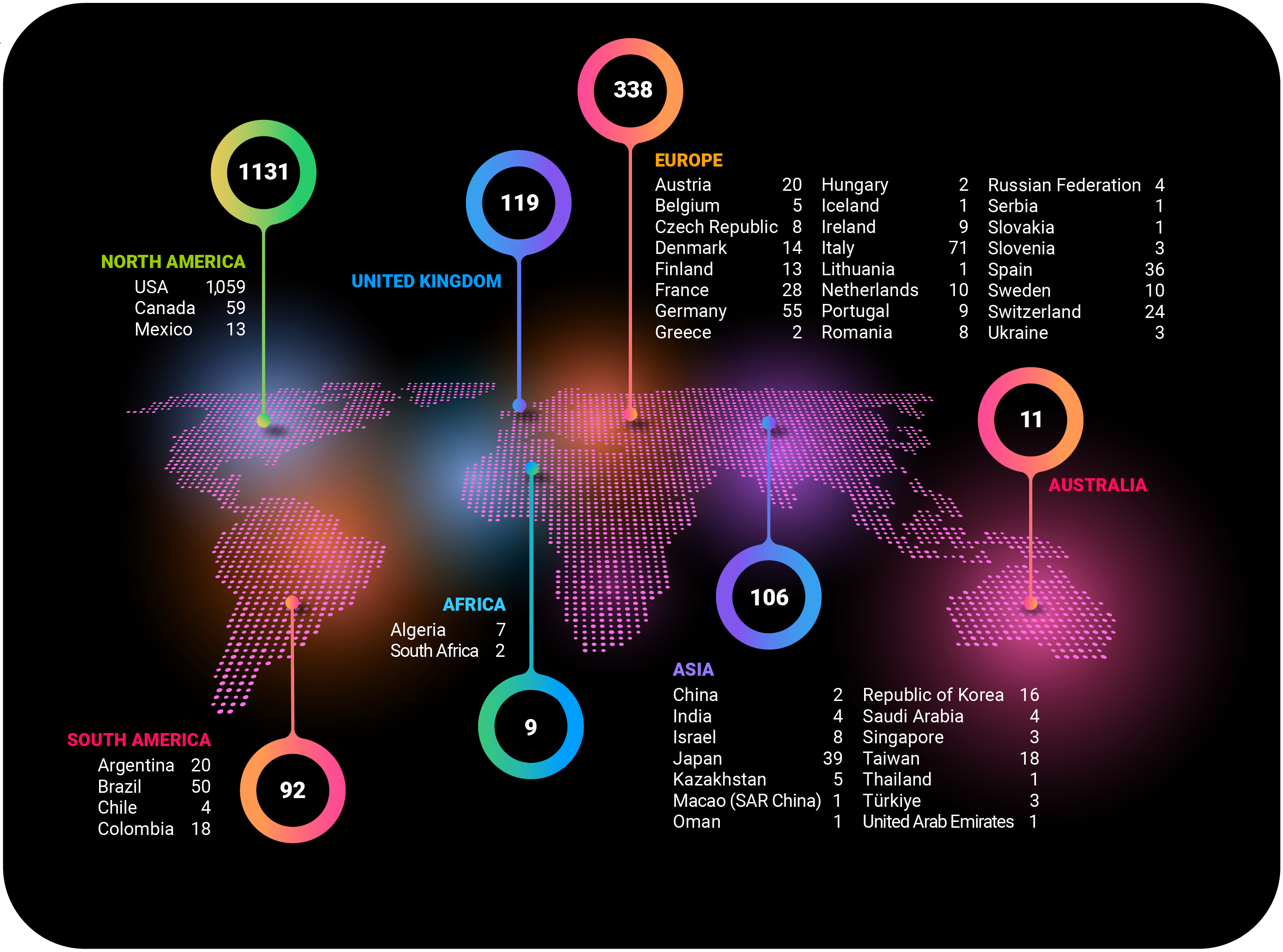
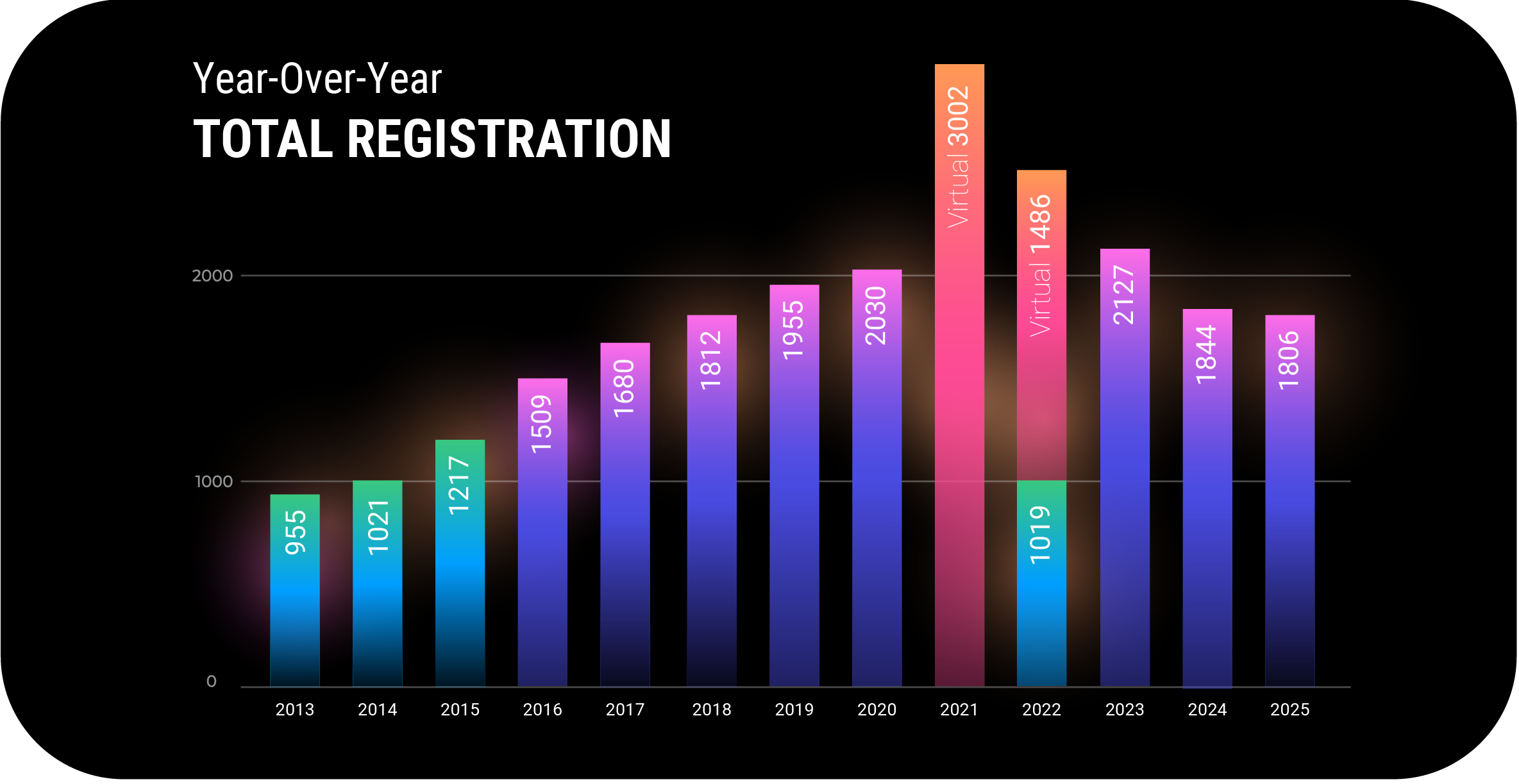
Registration
While overall attendance increased in 2021** with a Virtual-Only Program, the return to live meetings has again attracted strong in-person attendance, and live attendance in 2025 exceeded expectations.
Attendee Specialty & Profession
The diverse specialties and professions represented by conference attendees provides a forum for productive multi-disciplinary discussions and collaborations. By sharing knowledge, ideas and insights, attendees have outstanding opportunities to learn from one another and formulate creative ways to improve patient care and treatment outcomes.
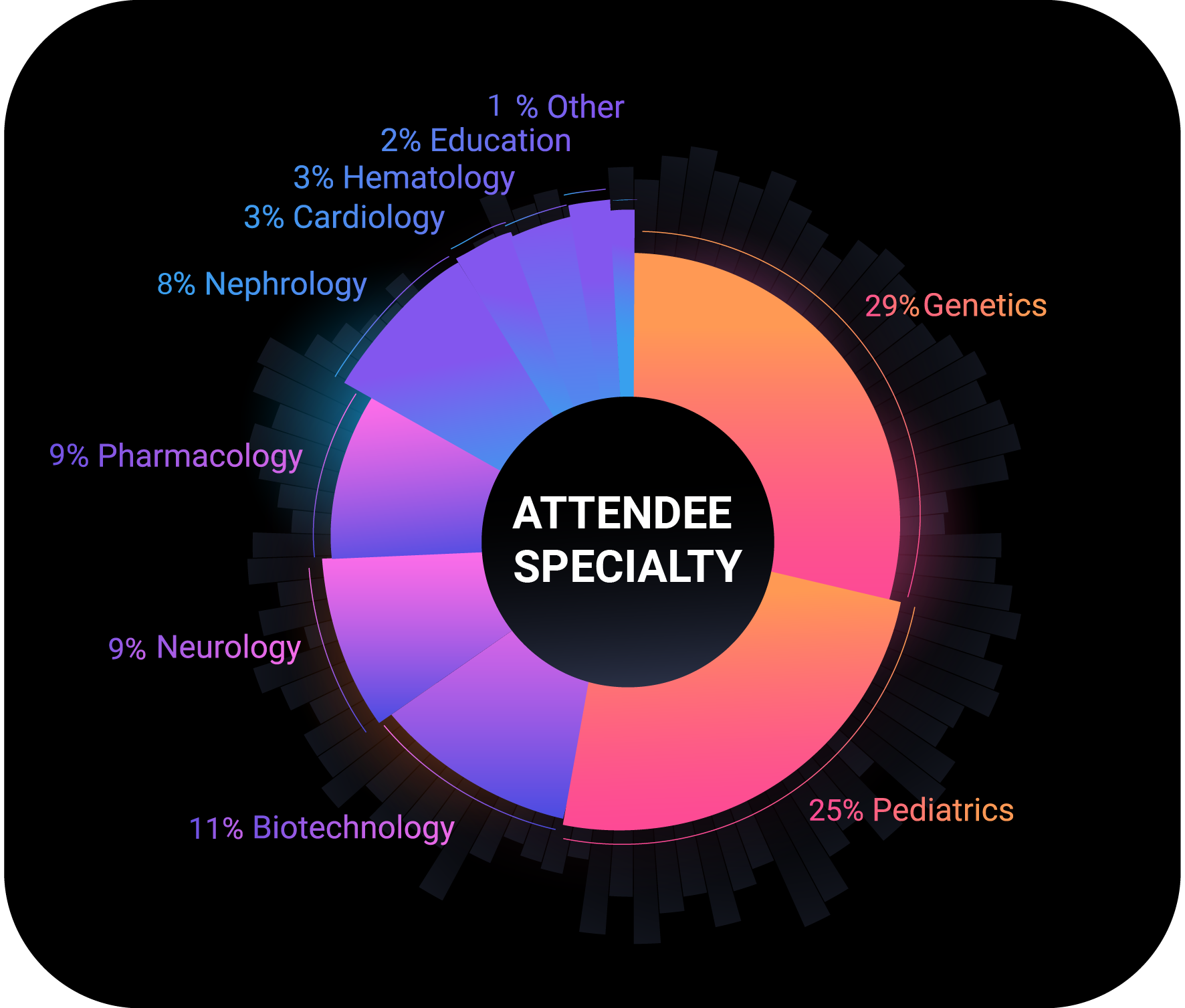
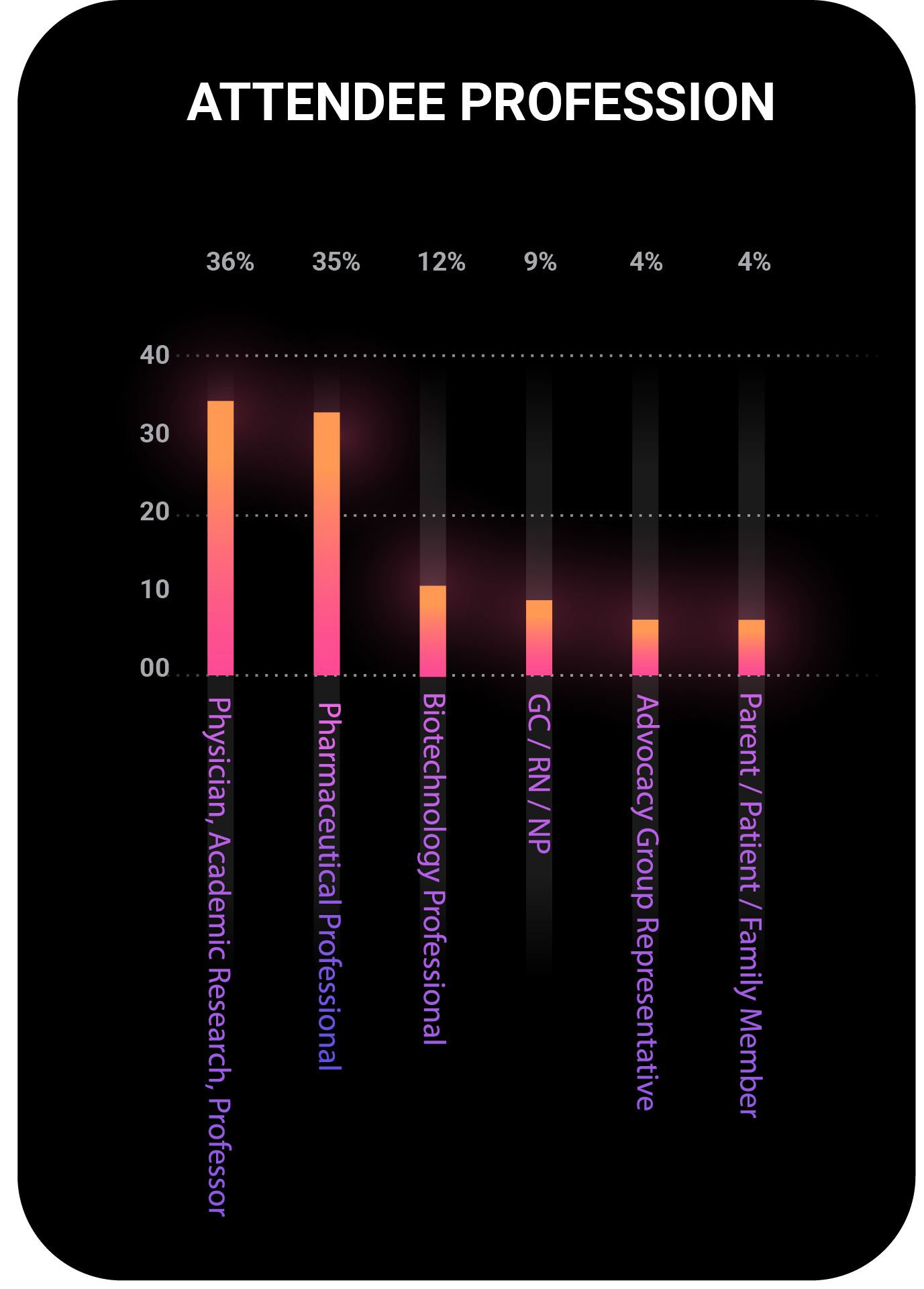
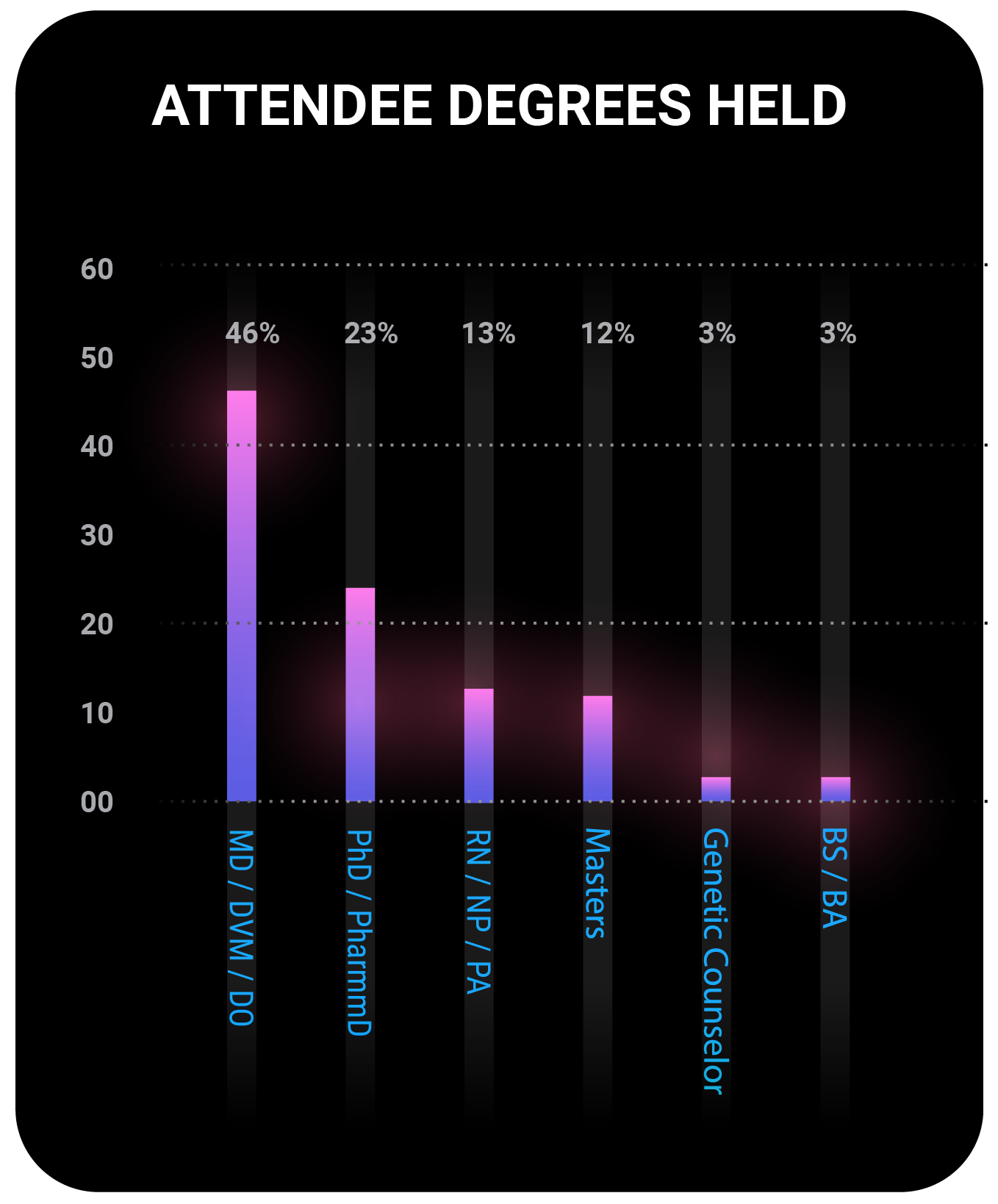
Attendee Degrees
The majority of attendees have advanced degrees in medicine and biotechnology and represent the most knowledgeable and experienced lysosomal disease professionals in the world. The collective expertise of this global audience contributes to a deep understanding of complex topics, and robust discussion of the latest developments in lysosomal diseases.
Satellite Symposia
19 unique Satellite Sessions were open to all attendees with an average of 250 attendees per session. The average satellite attendance did not vary based on the day of the week or the time of day. Compelling content and dynamic speakers continue to be the key to a successful satellite session.
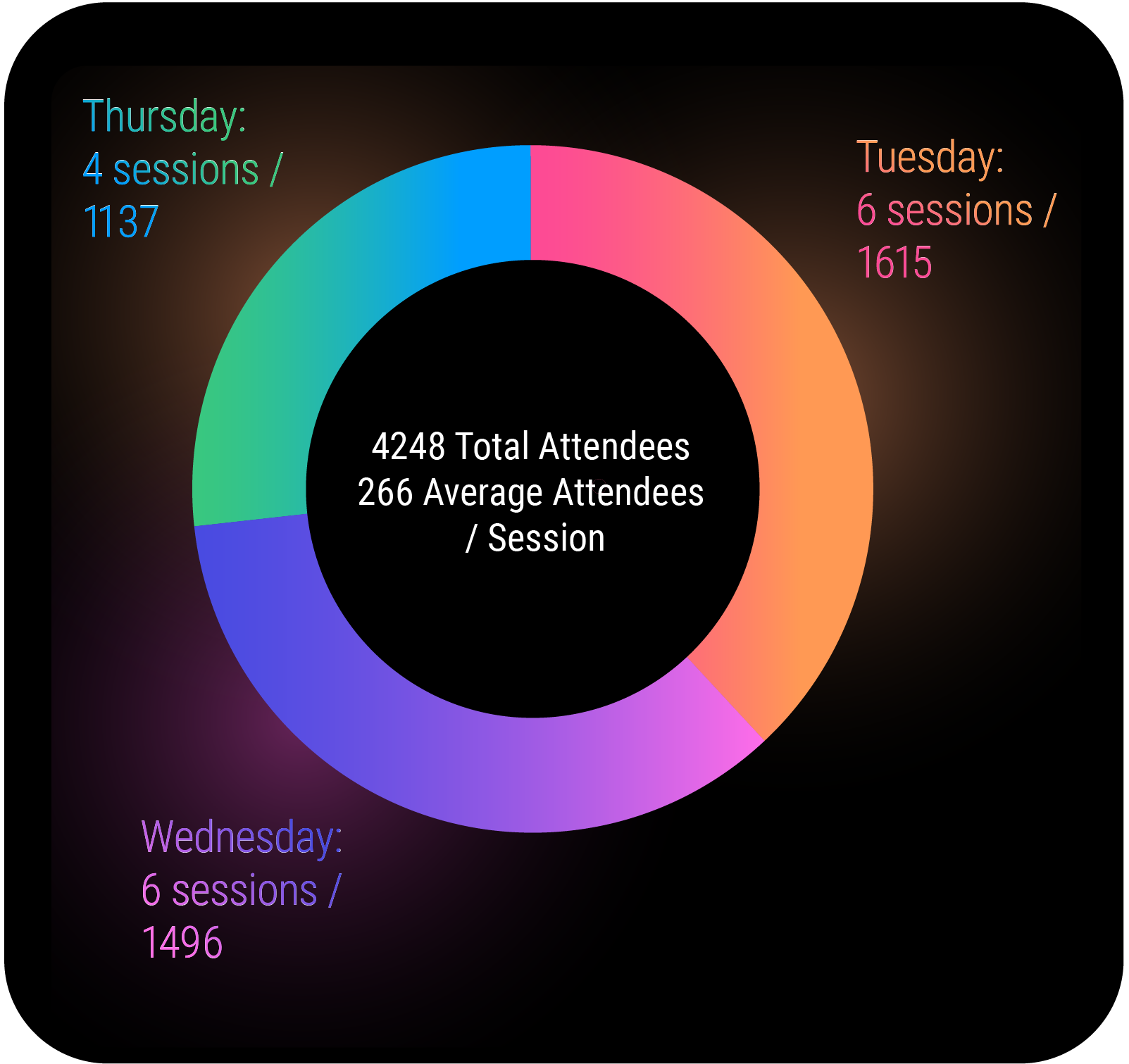
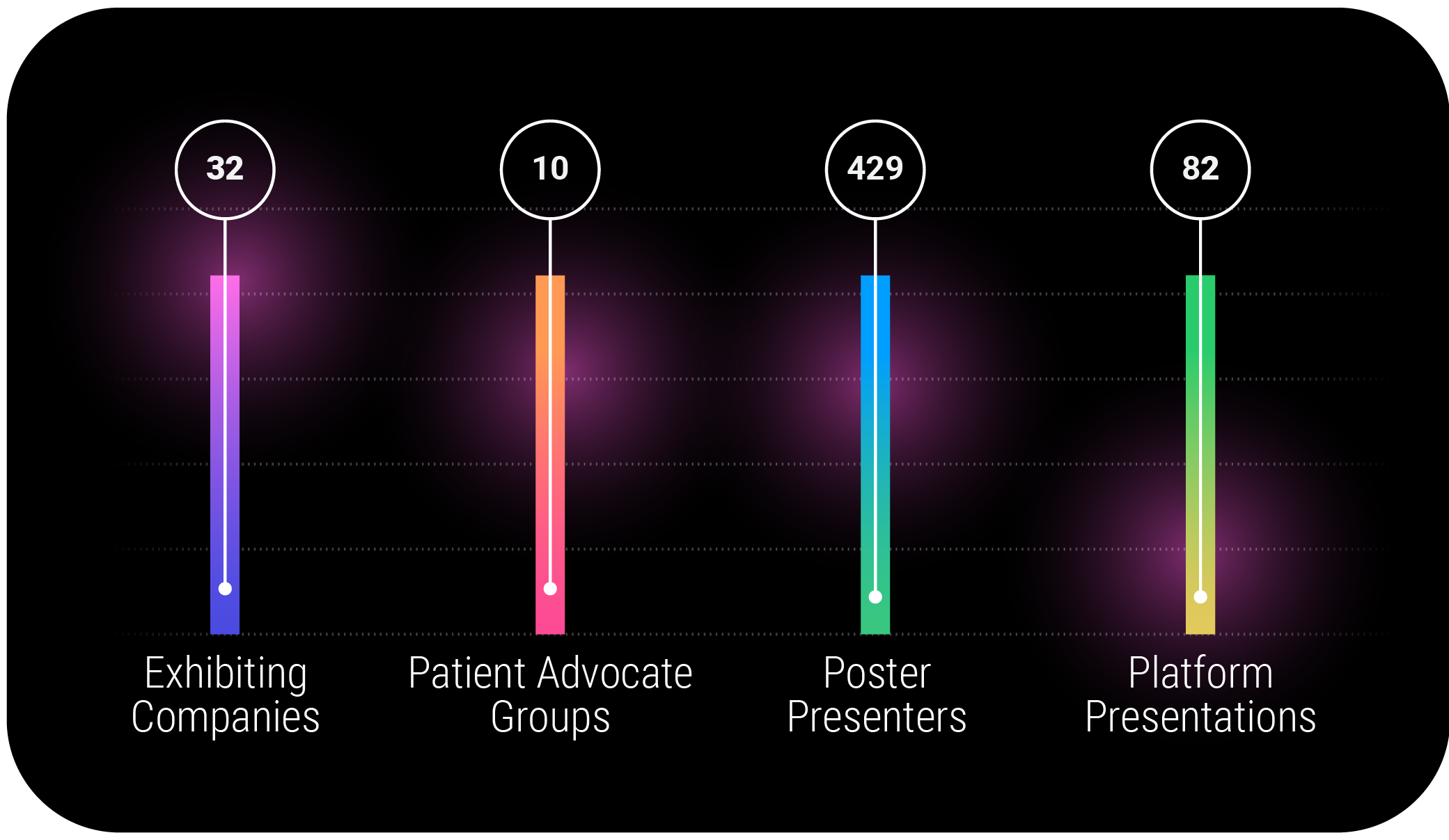
Posters, Abstracts & Platform Presentations
A total of 418 lysosomal disease abstracts from basic science and bench research, translational research, along with numerous clinical trials and outcomes were presented in 92 unique platform presentations and 4 different poster sessions.
Download a copy of the WORLDSymposium 2025 Summary Report.
Lysosomal Diseases
The lysosomal diseases are a collection of more than 40 clinical syndromes (view the Lysosomal Disease Network’s list here) with incidence rates ranging from 1 in 20,000 (Gaucher disease) to 1 in 300,000 (Wolman disease) live births; taken together these conditions are responsible for a significant amount of disability and disease burden. The rarity of each lysosomal disease means that no single medical research center has an opportunity to see sufficient numbers of patients with any one disease to effectively describe the full spectrum of each disease or adequately test any new therapies. The combined and integrated efforts of a network of centers with expertise in one or more of these diseases, and a comprehensive interprofessional team, are necessary to evaluate and improve care for patients with lysosomal diseases.
Examples of lysosomal diseases include: Aspartylglucosaminuria; Batten disease; cholesteryl ester storage disease; Fabry disease; fucosidosis; galactosialidosis types I & II; Krabbe disease; neuronal ceroid lipofuscinosis (infantile, late infantile, juvenile); mucolipidosis types II, III, & IV; mucopolysaccharidosis types I, II, III, IV, VI, and VII (Hurler, Hurler–Scheie, and Scheie; Hunter, Sanfilippo, Morquio, Maroteaux–Lamy syndromes, and Sly syndrome, respectively); Niemann–Pick disease; Pompe disease; Sandhoff disease; Schindler disease; sialidosis types I & II; Tay-Sachs disease; Wolman disease; alpha-mannosidosis types I & II; beta-mannosidosis. (This is by no means an exhaustive list, but it gives examples of the many diseases included.)
